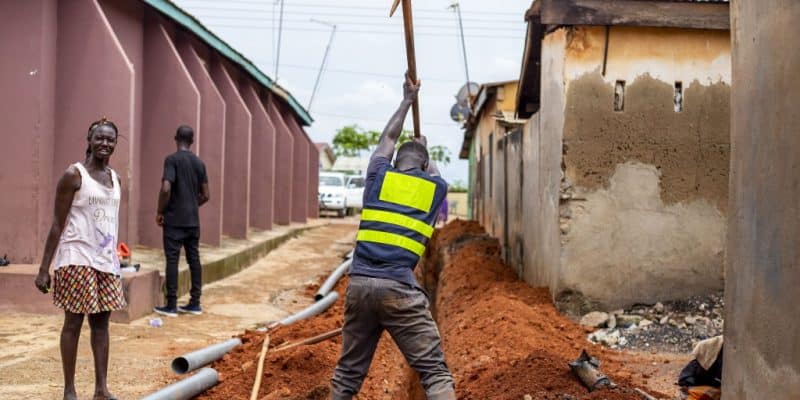The Ghana Water Company Limited (GWCL) is planning to implement a project to meet the demand for water in Sunyani and parts of the Bono area. The construction of the new water supply infrastructure will require an investment of €133 million.
In Ghana, the Bono Region authorities and Ghana Water Company Limited (GWCL) are working together to strengthen the supply of drinking water in the regional capital Sunyani. In this regard, Samuel Ason, GWCL’s Chief Engineer in Bono and Justina Owusu-Banahen, the Regional Minister, recently visited the site of a new water supply facility at Abesim, near Sunyani.
As a result of the visit, the local authorities announced the imminent launch of a project to improve the supply of clean water to the population. The work will involve the construction of a water intake that will feed a drinking water plant with a capacity of 55,000 m3 per day.
Central government funding
The future facilities will also be equipped with ground-level and elevated tanks with a total capacity of approximately 16,500 m3. The project also includes the construction of two booster stations, the laying of 93 km of transmission pipelines, the provision of 10,000 household meters, the construction of laboratories and chemical storage buildings, and the construction of a power line to supply the whole.
Read also- GHANA: Parliament approves €74m funding for drinking water in Tarkwa
In some parts of the Bono area, GWCL plans to build water kiosks. 133 million has already passed the feasibility study stage. Earthworks are expected to start at the end of July 2022 with delivery of the future facility in 2025. The financing will be provided by the Ghanaian central government, which made other investments in 2018.
According to the Community Water and Sanitation Agency (CWSA), this intervention has resulted in the development of over 3,400 boreholes and over 400 wells. Currently, GWCL relies on groundwater pumping stations to supply people in Sunyani town. The utility wants to reduce pressure on the water table by storing rainwater.
Jean Marie Takouleu






